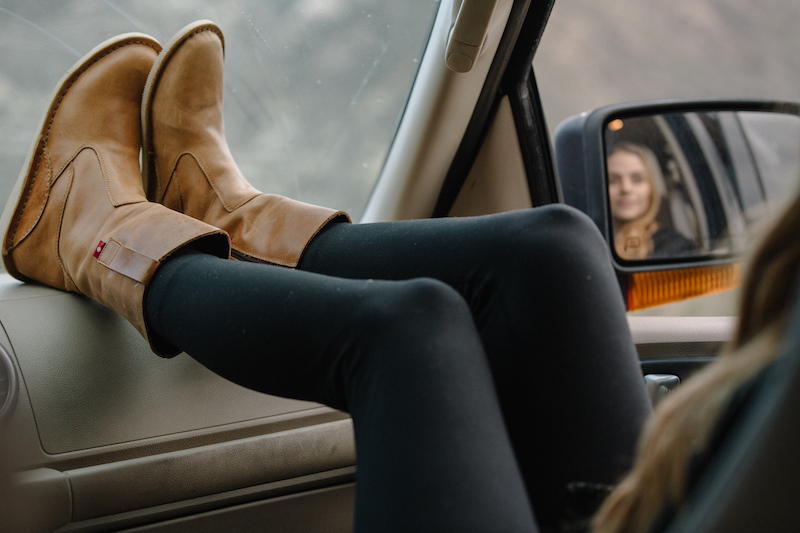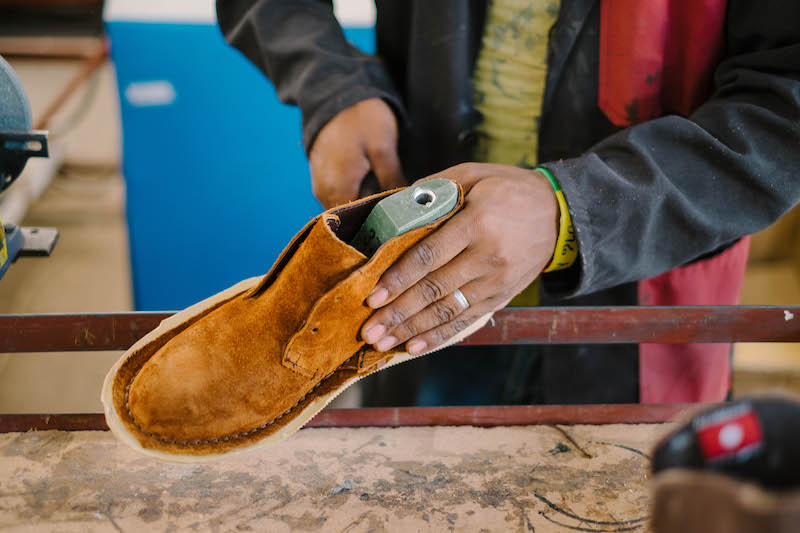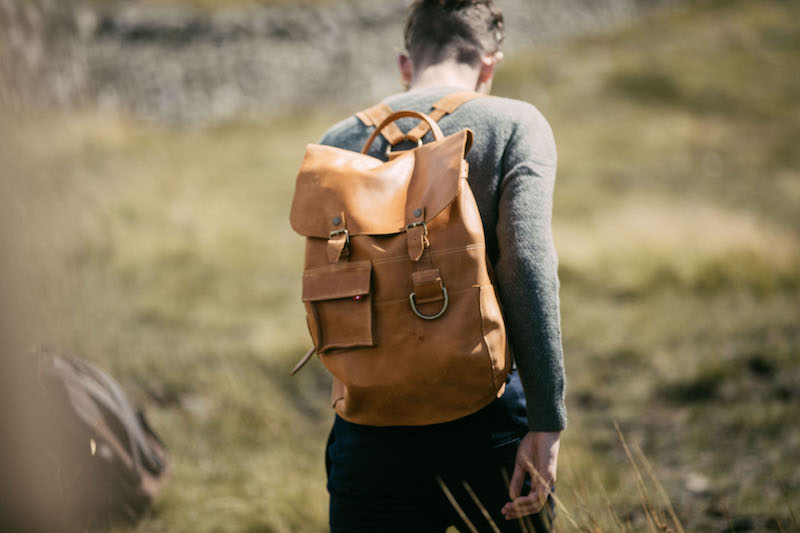In our new career series, How I Got My Job, we talk to real people, working real jobs in the fashion and retail industry. These people are pushing boundaries and have made their mark. They’ve found success on their own terms, and now we’re extracting their advice on how to carve your own career path.
Those who find themselves working in the fashion industry sometimes didn’t always expect to be there. Todd Cunningham is one of those people.
As the marketing director of Oliberté, a fair-trade certified lifestyle brand, the 33-year-old has been in charge of the company’s marketing strategies for the last three-and-a-half years. But next to a bit of retail employment, Cunningham really didn’t have much previous experience working a corporate position in the fashion industry.
Yet the New Brunswick native has become somewhat of a tastemaker in Toronto and has proven his place working in the fashion industry. We had the chance to sit down with him to learn more about how he got his job in fashion.
What does a typical day at Oliberté look like for you?
Everyday is massively different as far as what we actually end up doing because you can go into the day with one plan and it changes within the first five minutes of opening your computer.
But for the most part, at the beginning of each week, we figure out what the week looks likes as far as strategy of posts, what we need to be selling, and then we figure out what kind of ads are going to go out into the world to help people understand a) the brand for storytelling and b) the product per what’s going to sell.

How did you first get involved in the fashion industry?
I worked retail for a number of years, but I worked at a place prior to this called Lavish & Squalor. It’s a boutique in downtown Toronto, and at the time they had two storeys of retail and a third storey for the marketing division. I ended up going on board with them; first offering them marketing consulting, which then grew into a full-time position where I handled their entire marketing department. From there Tal Dehtiar, the CEO of Oliberté, caught wind of what I was doing — he liked it so much that he reached out through LinkedIn to see if I was interested in applying for my current position.
What has it been like working in fashion marketing?
Everyday is a learning experience. I’m sure anyone else in this industry can attest to the fact that you can spend a thousand hours learning marketing and then the next day you come into work and it’s all out the window, and there’s some new thing that you have to learn or nothing makes sense because the entire market changes. It’s a constant sea that we’re travelling here, and I would say you wouldn’t need any experience specifically in fashion or marketing to go into it, but it definitely helped that I was coming in with an understanding of footwear and fashion trends thanks to my retail background.

Coming from your various retail experience, why do you think fair trade fashion is important?
It’s important for a number of reasons. Number one, just because of the direction we’re going in the world right now, we don’t have infinite resources. The other part of it would be the ethical aspect of it in that there’s no reason why we shouldn’t be treating people fairly in this world. We all share this space together and we’ve got an imaginary line between us, but at the end of the day, we’re all human beings that don’t deserve to be treated any less than others. If we can provide a platform where people are given a level playing field and are given the opportunity to be treated properly, why not take that?
The exciting thing we do at Oliberté is set a standard to show a lot of other people that they can do that. You can be a successful brand and have a good product, and at the end of the day people on either end of the spectrum, whether they’re buying or creating, get treated right.
What role does social media play when it comes to shaping a brand like Oliberté?
It’s our vessel of communication. But traditionally, social media has always been more siloed than it is now. It was carefully incubated before where you would pay for your ads to be in a certain place and you knew they’d be in front of a certain audience where now you have all this data of who your audiences are and you can target them specifically. You can put things in front of people on Instagram and Facebook, and you can talk directly to the people who want to hear your message.
Instead of casting such a wide net, with social media you can get in front of the people who want to see your products, and you can control a lot more of the story that’s behind your product.

What makes Oliberté different from its competitors when it comes to its marketing?
What we have to offer with the fair trade aspect backing us in the ethical and sustainable certification says a lot about us as a brand, but I also think we have really unique footwear. We’ve got styles you don’t see in a lot of places and we’re lucky to be able to experiment with a lot of things and put [designs] in front of people that they don’t normally see.
[At Oliberté], we play around with creating a spectrum of footwear that’s a little more rugged and a little less polished than the machine footwear that comes out of a lot of brands. Ours are handmade: they’re crafted by actual people that get their hands on every single pair. You can see the brush strokes and the pencil marks sometimes, you can see all these things that make up the story behind the shoe and that there’s a human on the other end.
For us as a brand, what sets us apart from the pack is that each pair [of shoes] is completely different and has such a beautiful story behind it.
Has working for Oliberté changed the way you shop in regards to sustainable fashion?
Absolutely, it makes me more conscious. There’s such a wonderful community of other brands out there that are trying to do good things and trying to get their message across, so we team up with a lot of them to expand the communication our message.
Since I came on board, I’m aware of a lot more ethical options that do exist just below the surface. It’s been a huge eye opener being apart of this team and being surrounded by a community of brands that are doing the same thing all for the greater good.
What advice would you give to someone looking to get into a job like yours?
Always be learning. Take every opportunity to learn something new, there’s always room to grow, whether through being inspired by the projects of others, or simply in the technical understanding of the constantly shifting measurements of what does and doesn’t work for what’s in front of you. It’s such a wasted opportunity to not be self-motivated in the pursuit of being better, and no matter what it is that you learn — whether you think it’s relevant to the task at hand or not — more likely than not, it’ll wind up being a working part in your creative toolkit.
Learn more about Oliberte here.
Posts you might be Interested in:
Meet Mary Young: the Toronto Designer Who Sells Lingerie with Self Love in Mind
Style Profile: Ben Schubert from Ben & Boule Trading
Spotlight: George Sully from Sully Wong
7 Canadian Brands that Celebrities Love
7 Must-Have Canadian Menswear Brands for Fall
